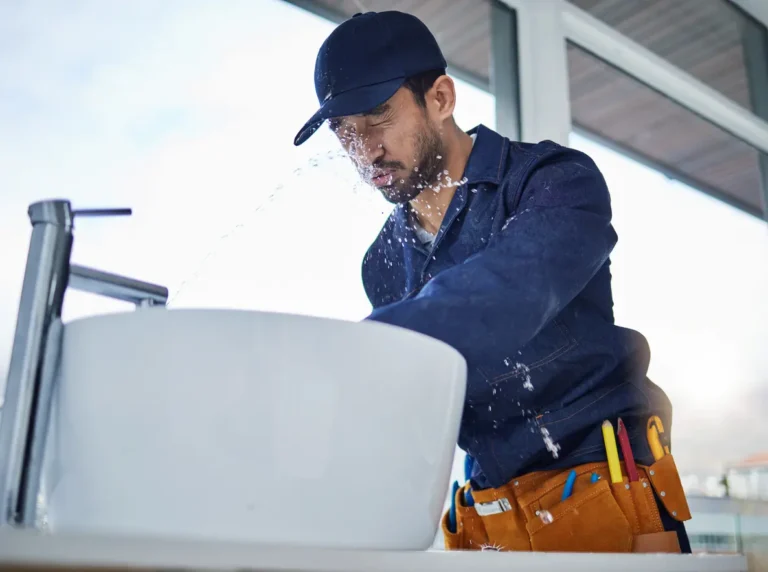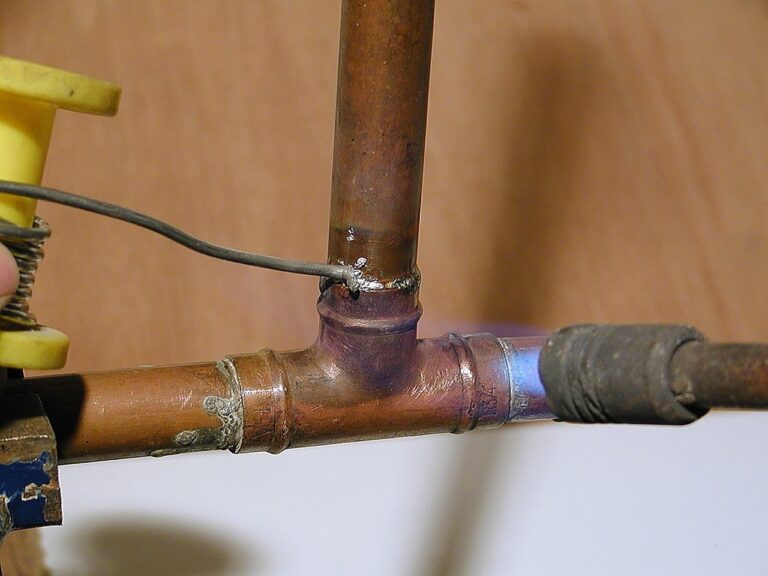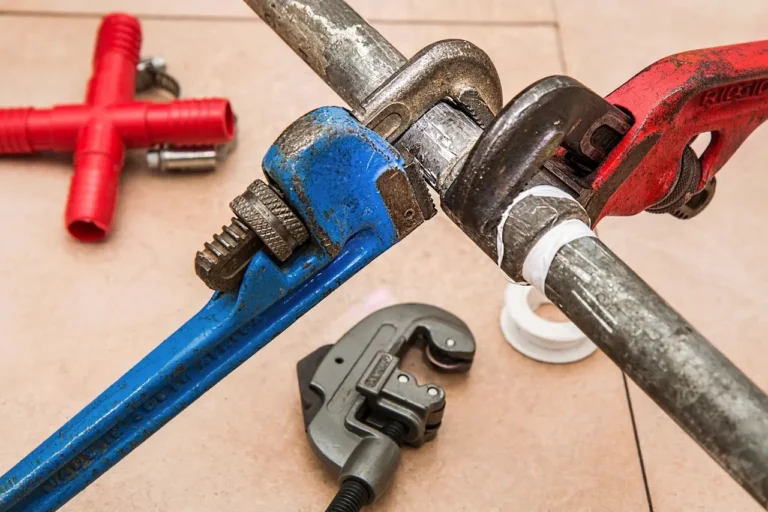Homeowners often encounter plumbing issues that require prompt attention. While some problems can wait until regular business hours, others necessitate immediate assistance from an emergency plumber. Understanding what is considered a plumbing emergency can save you time, money, and potential damage to your home. In this comprehensive guide, we will delve into various plumbing emergencies and provide guidance on when to seek emergency plumbing services.
1. Understanding the Severity of Water Leaks
Water leaks can cause extensive damage to your home if left unaddressed. Recognizing the signs of a severe leak is crucial in determining whether to call for emergency plumbing services. While not all leaks are emergencies, certain indicators, such as a rapid increase in water bills or water pooling where it shouldn’t be, warrant immediate attention and may require emergency leak repair.
- Extensive Leakage: If you notice signs of significant water leakage, such as a steady stream of water or pooling in your home, it is essential to contact an emergency plumber right away.
- Structural Integrity: Water leaks can compromise the integrity of your home’s structure, leading to weakened ceilings, walls, and floors. Timely intervention can help prevent further damage and costly repairs.
- Health Hazards: Mold and mildew growth resulting from water leaks can pose serious health risks, including respiratory issues, allergies, and asthma. If you observe signs of mold or experience respiratory symptoms, it is crucial to seek emergency plumbing services promptly.
Remember, not all leaks require emergency assistance. Minor drips or leaks that can be contained temporarily may be addressed during regular business hours.
2. Identifying Water Stains and Their Implications
Water stains on your ceiling or floors are visible signs of an underlying plumbing issue. While not all water stains indicate an emergency, situations such as a leaking ceiling that could compromise the structural integrity of your home do require immediate attention, raising the question: is a leaking ceiling an emergency?
- Discoloration and Sagging Ceilings: If you observe water stains accompanied by sagging ceilings, it is crucial to treat this as an emergency. Delaying repairs may lead to a ceiling collapse, further damage, and potential safety hazards.
- Extent of Water Damage: Assess the extent of water damage caused by the stains. If the damage is severe and poses a risk to your home’s structure, it is advisable to contact an emergency plumber promptly.
In cases where water stains are minor and the damage is contained, you may choose to address the issue during regular business hours.

3. Dealing with Damaged or Burst Pipes
Damaged or burst pipes can result in significant water damage and often necessitate emergency pipe leak repair. Here are some key considerations when dealing with a leak pipe repair situation that could escalate into a full-blown emergency, especially in the case of a burst pipe.
- Flooding Risks: Burst pipes can release a large volume of water within a short period, leading to flooding in your home. This can compromise the safety of your household and cause extensive damage to your property.
- Structural Damage: The force of water from burst pipes can weaken ceilings, walls, and floors. To minimize damage, it is crucial to shut off the main water supply and contact an emergency plumber without delay.
- Winter Precautions: Burst pipes are more common during winter, especially in regions with freezing temperatures. Freezing can cause pipes to expand and burst. Taking proactive measures, such as insulating pipes, can help prevent such emergencies.
Remember, attempting to fix burst pipes without professional assistance can worsen the situation and potentially result in additional expenses.
4. The Urgency of a Sagging Ceiling
A sagging ceiling is a serious issue that compromises the structural integrity of your home and requires immediate attention. Here’s what you need to know:
- Impending Collapse: A sagging ceiling indicates structural damage, potentially leading to a total collapse if left unaddressed. It is crucial to turn off the water supply and contact a 24/7 plumbing company immediately.
- Safety Precautions: Do not attempt to fix the issue yourself, as this can be dangerous and lead to further damage. Instead, prioritize your safety by evacuating the affected area and seeking professional assistance promptly.
Delaying the resolution of a sagging ceiling can result in escalating costs, water damage, and potential hazards for your household.
5. Addressing Low Water Pressure
Low water pressure can be a frustrating issue, but it may not always require emergency plumbing services. Consider the following factors:
- Multiple Faucets Affected: If you experience low water pressure in multiple faucets throughout your home, it may indicate a larger issue with your plumbing system. Contacting a plumber to diagnose and resolve the problem is advisable.
- Clogged Aerator: In some cases, low water pressure can be attributed to a clogged aerator. Cleaning or replacing the aerator can often restore normal water pressure. However, if the issue persists or affects multiple faucets, professional assistance may be necessary.
It is essential to differentiate between minor water pressure fluctuations and persistent low water pressure that may indicate an underlying plumbing emergency.

6. Handling an Overflowing Toilet
An overflowing toilet, which is a leaking toilet an emergency, can quickly turn into a messy and unsanitary situation. Consider the following factors, including the risk of a running toilet, when deciding to call for emergency plumbing services:
- Clogged Pipes: If your efforts to unclog the toilet using a plunger are unsuccessful and the toilet continues to overflow, it is crucial to contact an emergency plumber. Persistent overflow may indicate a more significant blockage in the pipes that requires professional intervention.
- Limited Bathroom Access: If your home has only one functioning toilet, losing access to it due to an overflowing issue qualifies as an emergency. Promptly contacting an emergency plumbing repair company is advised.
- Water Valve Accessibility: In some cases, turning off the water supply to the toilet can temporarily resolve the issue. However, if the overflow persists or the water valve is inaccessible, it is essential to seek professional assistance promptly.
An overflowing toilet can lead to water damage, unsanitary conditions, and inconvenience for your household. Timely intervention can help mitigate these issues.
7. Dealing with Clogged Drains
Clogged drains are a common plumbing issue that can range from minor inconveniences to more severe emergencies requiring drain cleaning. Consider the following factors:
- Multiple Signs of Blockage: Slow drainage, bubbling water, and puddles around drains are indicators of a potential blockage. If you notice these signs persistently or across multiple drains, it may signify a more significant issue that requires professional attention.
- Preventive Measures: Taking preventive measures, such as avoiding flushing non-flushable items and regularly cleaning drains, can help minimize the risk of blockages. However, if clogs persist despite these efforts, it is advisable to contact a plumber for a thorough inspection and resolution.
While minor drain clogs can often be resolved with DIY methods, persistent or severe blockages may require the expertise of an emergency plumber.
8. Addressing Water Heater Failure
A malfunctioning water heater can disrupt your daily routine and pose potential risks. When considering water heater repair or water heater installation, assess the urgency of the issue by examining the following factors:
- Lack of Hot Water: A lack of hot water, especially during winter or if accompanied by the smell of gas, may qualify as an emergency. Cold showers can be uncomfortable and potentially dangerous, particularly for vulnerable individuals such as the elderly or young children.
- Smell of Gas: If you detect the smell of sulfur or rotten eggs near your water heater, it indicates a gas leak. Gas leaks are serious emergencies that require immediate attention to mitigate health and safety risks.
- Seasonal Considerations: While the lack of hot water is particularly problematic in winter, it can still be an emergency in other seasons, depending on individual circumstances. Assess the impact on your daily activities and contact an emergency plumber accordingly.
Water heater issues can disrupt your daily routine and compromise your comfort. Promptly addressing these problems can help restore hot water supply and avert potential hazards.

9. Recognizing Gas Leaks
Gas leaks pose significant risks to you, your household, and your property. Recognizing the signs of gas leaks is crucial and requires prompt action. Consider the following indicators:
- Smell of Gas: Natural gas is odorless, but companies add a distinctive smell to help detect leaks. If you detect a strong smell of sulfur or rotten eggs, it may indicate a gas leak. Evacuate the premises immediately and call 911..
- Audible Cues: Hissing or whistling sounds near gas lines can indicate a gas leak.
Gas leaks are extremely dangerous and require immediate action. Evacuate the premises, contact the gas company to shut off the gas supply, and call an emergency licensed master plumber like John Farr to address the issue promptly.
10. Addressing Sewage Backups
Sewage backups pose health hazards and require urgent attention. Here’s what you need to know about handling a sewage backup:
- Odor and Water Backup: If you notice a strong sewage odor in your home or experience water backup in sinks, showers, or toilets, it indicates a sewage backup. This is a serious emergency that necessitates immediate professional assistance.
Sewage backups require specialized expertise and equipment to resolve safely. Do not attempt to address the issue yourself, as it can lead to further contamination and health risks.
When Not to Call an Emergency Plumber
While certain situations require immediate attention from an emergency plumber, not all issues necessitate their services. Consider the following scenarios that can typically wait until regular business hours:
- Dripping Faucet: Minor leaks, such as a dripping faucet, can generally wait until regular business hours for repairs. Temporary measures, such as placing a bowl underneath the leak, can manage the issue temporarily.
- Clogged Toilet: A clogged toilet, unless causing significant water overflow, can often wait until regular business hours. Basic unclogging techniques, such as using a plunger, may resolve the issue temporarily.
- Slow Drainage: Slow drainage in a single fixture may not warrant emergency plumbing services. Attempting DIY methods or scheduling a regular plumbing appointment can address the issue effectively.
Assessing the severity of the problem and considering alternative solutions can help determine whether emergency plumbing services are necessary.
Conclusion
Plumbing emergencies can disrupt your daily life and cause damage to your home if not promptly addressed. By familiarizing yourself with the signs and indicators of plumbing emergencies, you can make informed decisions about when to seek immediate assistance from an emergency licensed master plumber like John Farr. Remember, timely intervention can help mitigate further damage, ensure your safety, and restore the functionality of your plumbing system. Call John today at 917-324-2535.